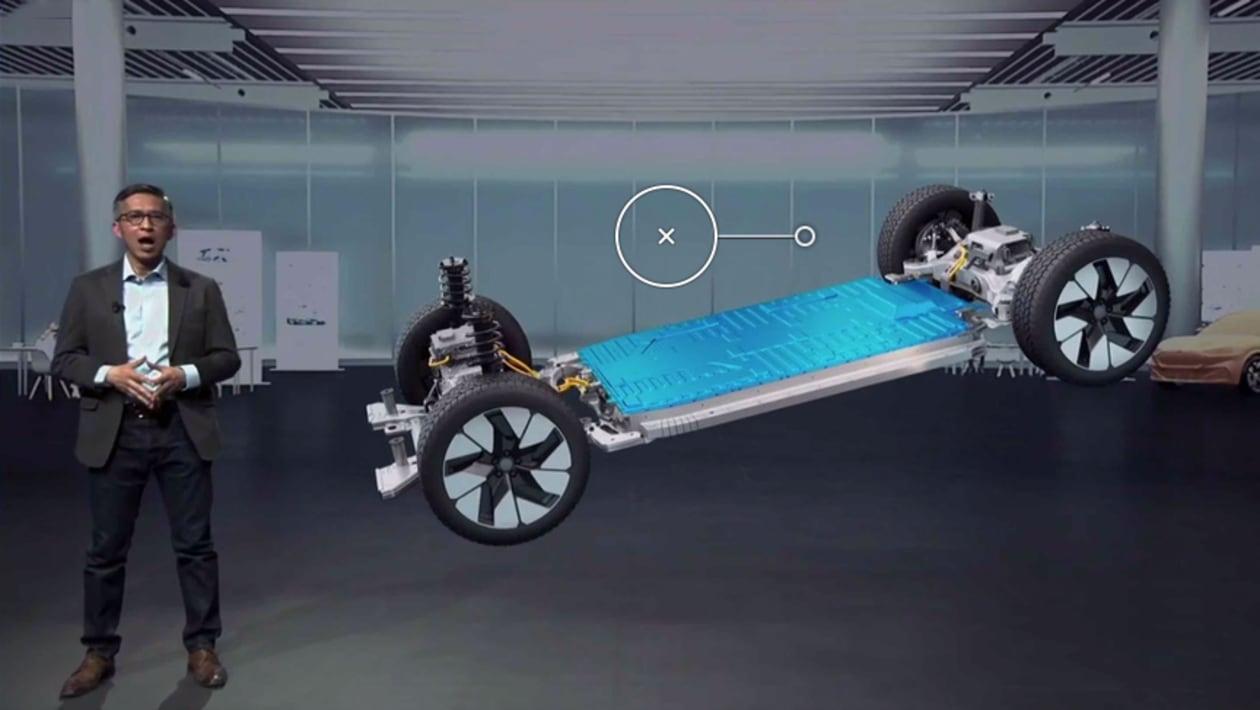
Ford has announced it will develop two new flexible vehicle architectures. The first is a rear-wheel-drive/all-wheel-drive flexible architecture that will underpin future compact and full-size vehicles, including two and three-row SUVs, vans and pick-up trucks. The second scalable battery-electric vehicle platform will be for Ford’s next-generation large pick-up trucks and utility vehicles.
Speaking at Ford’s Capital Markets Day investor presentation, Hau Thai-Tang, chief product platform and operations officer, confirmed the two new scalable platforms. While the second is more relevant for American-market vehicles, the first platform could underpin future European products from the Blue Oval.
Thai-Tang said, “Just as our customers aren’t all the same, our BEV architectures won’t be either. Our new rear-wheel-drive/all-wheel-drive flexible architecture will deliver a whole new generation of high-volume vehicles with even better returns, because it supports high production scale.
“Our architecture approach still allows us to share parts across vehicles. Rest assured, while some of the technologies are shared, the vehicles themselves and the experiences they create for Ford customers will be very different,
“Our new flexible architecture will underpin a range of emotive vehicles slated for production between now and 2030.”
He did not, however, outline when we will see the first new vehicle to be based on this platform.
Ford already has partnerships with Volkswagen and Rivian for electric vehicle architectures, and Thai-Tang outlined how these agreements fit in with the Blue Oval’s new plans.
“Where do Volkswagen MEB and platform and Rivian skateboard platform fit in? In Europe it’s more efficient to partner with Volkswagen for the architecture of our small and mid-size BEVs. After all, One Ford taught us that while global scale delivers engineering efficiencies, it’s ultimately local scale that delivers significant material cost savings. This is the smarter play here.”
He didn’t rule out new cars based on the brand’s first bespoke EV platform coming to Europe and the UK, although this might be unlikely given this existing VW relationship.
“As for Rivian,” Thai-Tang continued, “we’re learning from their perspective as an agile start-up. Both are adding value”.
The latest announcement is part of the brand’s new Ford+ strategy focused on a software-first and data-driven approach to vehicle development and ownership for its customers.
Thai-Tang introduced the new ‘Blue Oval Intelligence’ tech stack that encompasses software architecture, cloud and edge networks, vehicle electrical architecture, power distribution, on-board computers and memory and sensing hardware.
Ford is also partnering with Google to access the software giant’s network of app developers and utilise its machine learning and artificial intelligence expertise to help improve profitability.
Sean Carson



